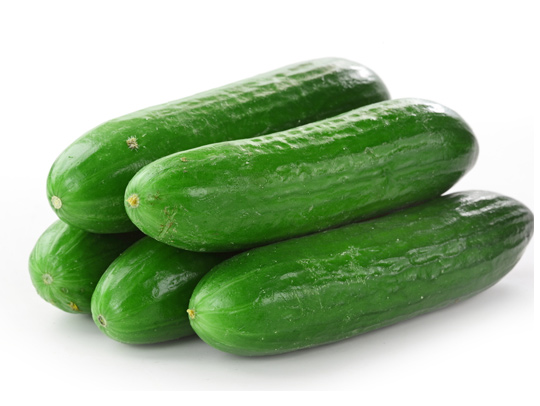FL Commissioner Nikki Fried: ITC Reports Confirm Mexican Imports Devastating Florida Farmers
January 14, 2022 | 8 min to read

Tallahassee, Fla. – Today, Florida Agriculture Commissioner Nikki Fried made the following statement in response to reports released last week by the non-partisan U.S. International Trade Commission (ITC) concerning the effect of imports on the domestic seasonal squash and cucumber markets. The ITC reports confirm unfair practices have fueled the explosive growth of Mexican fruit and vegetable imports resulting in grave harm to American producers, demonstrating a clear need for the federal government to provide timely and effective relief for impacted farmers in Florida and other seasonal crop states.
Last April, Commissioner Fried testified before the ITC and provided two reports from the Florida Department of Agriculture and Consumer Services (FDACS) showing a surge in foreign imports of fresh and chilled cucumbers and squash, predominantly from Mexico, has caused an estimated 2,721 lost jobs, $944 million in lost cash receipts, and $1.85 billion in negative economic impact for Florida’s domestic produce growers since 2015. The ITC directly cited the FDACS findings in its official reports on squash and cucumbers, validating the continued findings by the Department as to continued harmful impacts of unfair foreign trade on the domestic industry, with its most recent report finding a nearly $4 billion economic impact on Florida due to Mexican imports alone.
“The ITC reports confirm what our Department’s reports have long shown and what Florida’s seasonal producers have long felt: unfair trade practices being employed by Mexico and others are devastating the domestic market, putting local farmers out of business and risking the security of our domestic food supply,” said Commissioner Fried. “While Florida has been the hardest hit and Mexico has been the worst offender, seasonal producers across the United States are being impacted by similar unfair trade perpetrated by several foreign markets. This harm is also not isolated to our squash and cucumber growers, as a large number of other domestic perishable produce sectors have sustained similar, if not greater, harm due to Mexico’s unrelenting volume increases.
“The ITC reports are just the latest economic studies that have shown the devastating trend of surging imports costing the domestic market and risking the domestic food supply,” Commissioner Fried continued. “The need could not be more clear and the timing could not be more urgent for the federal government to use all tools available to enact an effective and enforceable action plan to stem the onslaught of these imports and the unfair trade and labor practices being employed by foreign competitors. The survival of our domestic industry and the security of our food supply are at stake.”
“Our U.S.-grown food supply is at risk,” said Mike Joyner, president of the Florida Fruit & Vegetable Association. “Skyrocketing imports of Mexican fruits and vegetables due to unfair trade practices continue to cripple growers in the Southeast. While we commend the International Trade Commission for working to help solve this longstanding and growing threat to the Southeast produce industry, now is the time to act. Immediate, effective, swift relief is needed to give our Florida produce growers a future and ensure that a U.S.-grown produce supply is available to American families during the fall, winter and spring months of the year.”
Background: Commissioner Fried remains an outspoken advocate for the domestic seasonal produce industry, continuously calling for timely and effective relief for farmers in Florida and across the United States since taking office in 2019. In August 2020, Commissioner Fried testified at a virtual hearing held by the Office of the United States Trade Representative (USTR), the U.S. Department of Agriculture (USDA), and the U.S. Department of Commerce, presenting a major report showing the economic harm these trade distorting policies are having on Florida farmers and our economy overall. Since that time, the gap between Mexican agricultural exports and Florida’s total agricultural value widened from $11 billion to $23.3 billion as Mexican specialty crop imports have soared by 580% since 2000, reflected in the latest FDACS report released in August 2021 that Commissioner Fried shared with the USDA and USTR.
Following the August 2020 hearing, the same three federal agencies outlined a plan to help the domestic seasonal produce industry, and Commissioner Fried reiterated her commitment to holding the administration accountable for delivering enforceable protections and access to relief for Florida’s farmers. Coming out of that hearing, the ITC launched multiple investigations into the impacts of increased foreign imports on several seasonal crops. In addition to testifying before the ITC on cucumbers and squash, Commissioner Fried also testified at its investigations into blueberries and provided comments on its strawberry and bell pepper investigation since no formal hearing was held. Commissioner Fried continues to work closely with Florida’s specialty crop growers and members of Congress demanding protections for the domestic seasonal produce industry.
